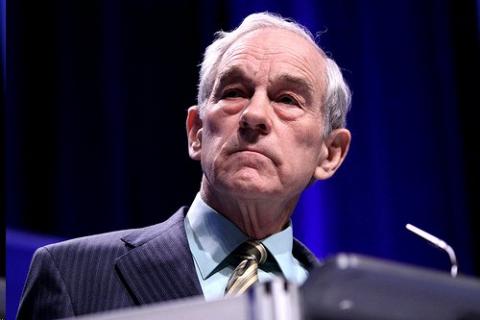Ron Paul Flunks the R (Racism) Test

From New America Media: Things got worse for GOP presidential candidate Ron Paul when his rival Newt Gingrich recently called him out for purportedly using racially inflammatory language in official fundraising newsletters during the 1990s. The newsletters in question - Ron Paul’s Political Report and Ron Paul’s Freedom Report - brought in a considerable haul of cash for Paul, a longtime politician and presidential candidate. His half-baked racial scribbles are by now well known: He’s bashed Blacks for being chronic welfare grifters, thugs and lousy parents. He has also said Black people are inherently racist toward whites.
Following Gingrich’s attacks, Paul issued a terse denial that he authored or even read any of the aforementioned racial slanders. But there is also no evidence that he ever wrote a correction or issued a clarification.
Paul was back at it again in 2008, when he was also running for president. On his campaign website, ronpaul2008.com, Paul spotlighted race as a major issue when he wrote: "Government as an institution is particularly ill-suited to combat bigotry." In short, the landmark1954 Supreme Court case Brown vs. Board of Education, the 1964 and 1968 Civil Rights Acts, the 1965 Voting Rights Act, and legions of other court decisions and state laws that bar discrimination are, according to Paul, worthless. Going even further than that, Paul has suggested that those laws have promoted bigotry by dividing Americans by race and class.
None of this would have much mattered to Gingrich, or to the mass media, if Paul hadn’t recently polled as a front-runner in the Iowa Caucus.
His kind-of, sort-of, let’s drop the subject dodges to the racism charge are standard Paul, and his protestations seem driven by political timing rather than sincerity. Paul has no choice but to embrace a diverse electorate if he is to have any credibility as a serious presidential contender. But Paul’s past writings and statements are more than likely a reflection of his true sentiment about racial matters.
Paul’s boast that he would not have voted for the landmark 1964 civil rights bill that's been the law of the land for nearly six decades is a textbook case in point.
Paul's rap against the bill is just as absurd and tortured as the rap that Southern Democrats and Northern GOP conservatives who bottled the bill up for more than a year in Congress used to pretty up their opposition to it: It violated property rights.
Paul, nearly six decades after those efforts failed, has had to deny those allegations in recent interviews: “I'm for property rights and for state's rights, and therefore I'm a racist? That's just outlandish."
The equal protection clause of the 14th Amendment wiped away the bogus claim that property rights trump racial discrimination, a century before Paul and Jim Crow maintenance proponents used this ploy to torpedo the civil rights bill. Yet linking the anti-civil rights position directly to the old property rights canard fits neatly into the stock libertarian argument that the best thing government can do is stay out of the affairs of private citizens and private business. It’s a philosophy that claims the root of America's woes -- bloated spending, soaring deficits, congressional gridlock, crippling energy dependence, massive tax disparities, the drug plague and even America's wars abroad are the result of top heavy government interference and intrusion in the lives of Americans.
Paul also knows that spicing up the horribly distorted Jeffersonian principle of limited government with race has broad implications for scrapping regulations on environmental and civil liberties and consumer protections, gutting regulations to prevent corporate abuses, and of course, slashing funding or eliminating government health services, education, welfare and labor law.
At the end of the day, Paul’s seemingly anti-establishment, anti-party, maverick position plays well with the legions of frustrated, disgusted and enraged Republican rank and filers and Libertarians who are desperate to have an alternative to the field of GOP establishment-anointed presidential contenders.
Paul could be magnanimous and apologize for his racist rants, while deftly deflecting blame to someone else and telling the press to get over it and talk about the “substantive” issues. But why would he? The dredging up of the newsletters gave him what he wanted. He is now nearly a household name and a viable force in the GOP. A slash and burn assault on government, even when it’s race tinged, doesn’t hurt Paul one bit. It gets media and public attention, draws denunciations from his defenders as hitting below the belt, and solicits quiet cheers from the multitudes that happen to agree with Paul, his suspect views on race notwithstanding.
Author Bio:
Earl Ofari Hutchinson is an author and political analyst, a weekly co-host of the Al Sharpton Show on American Urban Radio Network, the author of How Obama Governed: The Year of Crisis and Challenge, and a regular correspondent for New America Media. He hosts the weekly Hutchinson Report Newsmaker Hour on KTYM Radio Los Angeles streamed on ktym.com, podcast on blogtalkradio.com and on thehutchinsonreportnews.com.






























































































































































































































































































































